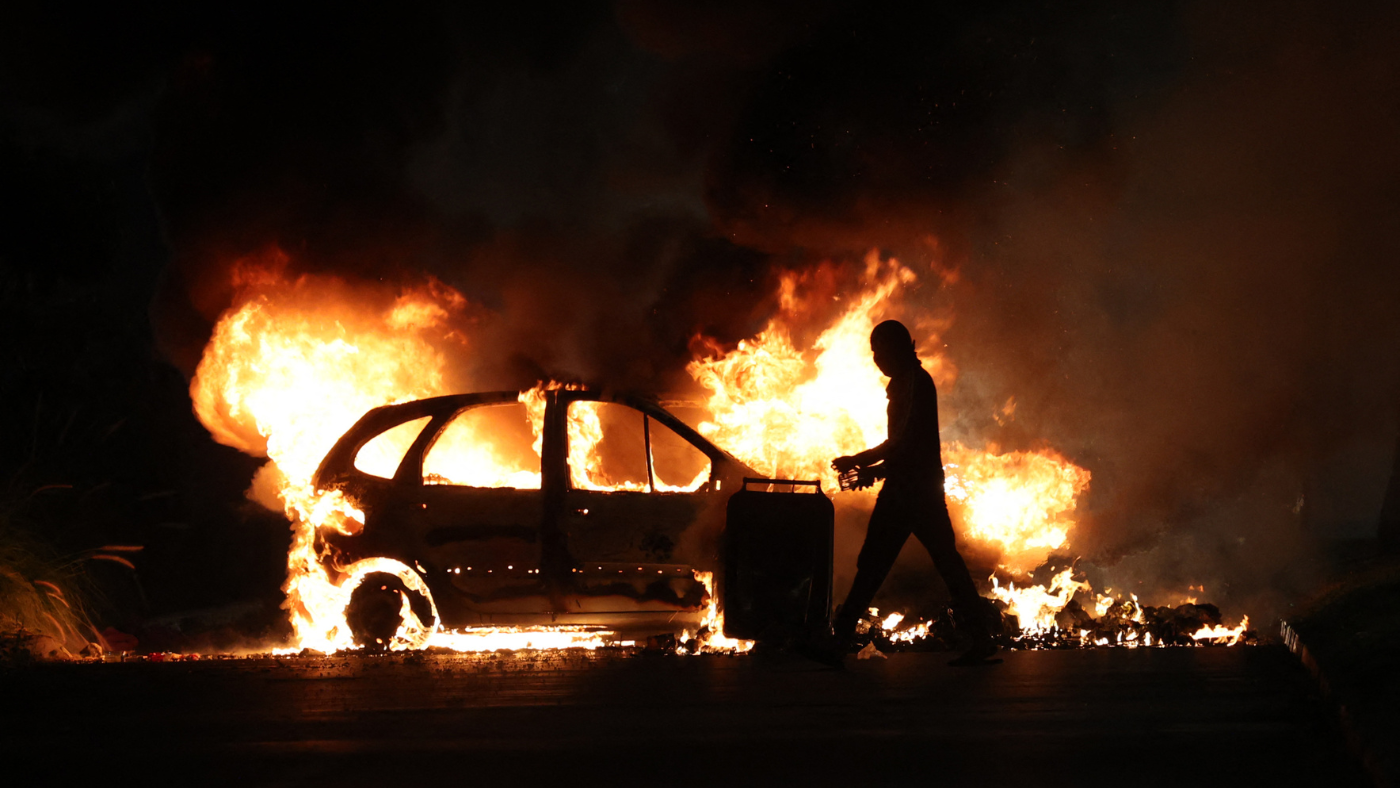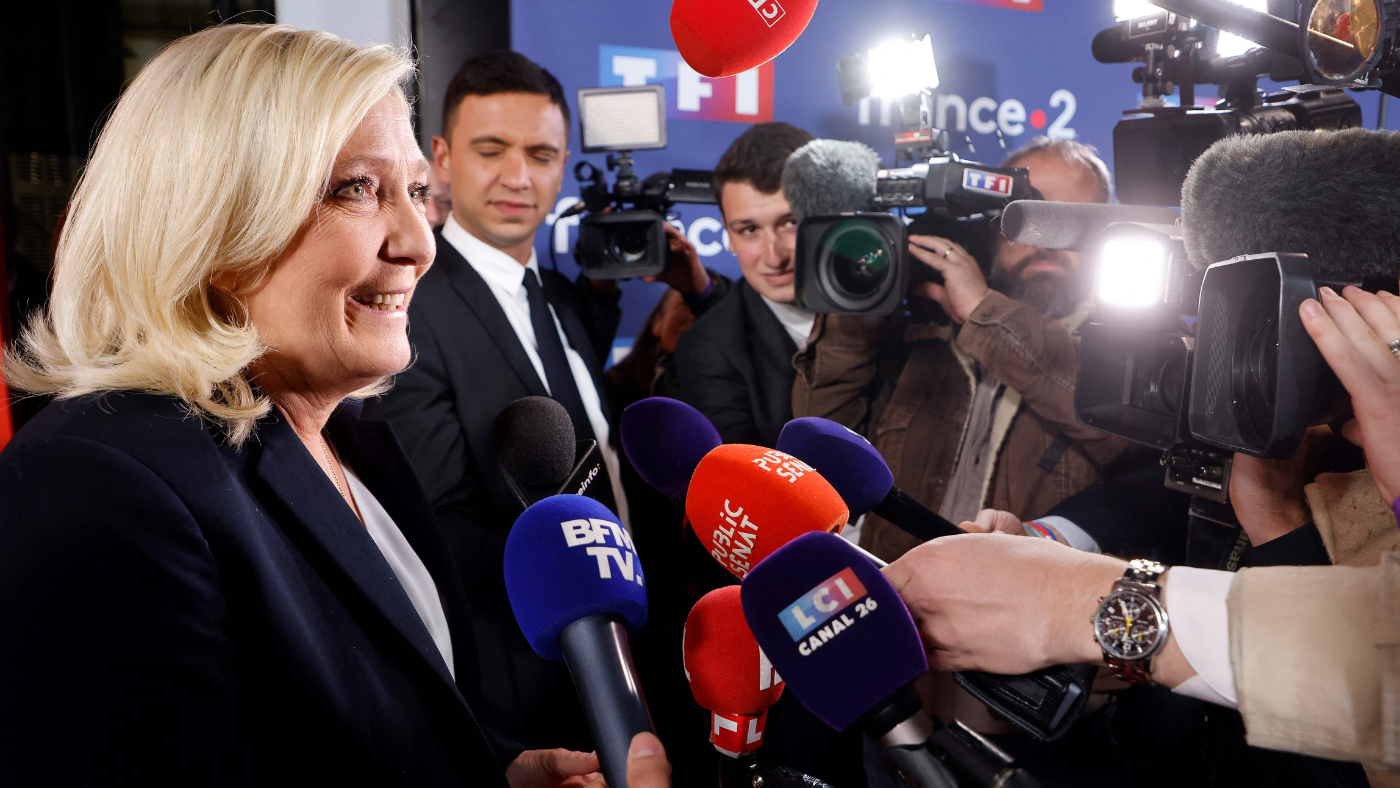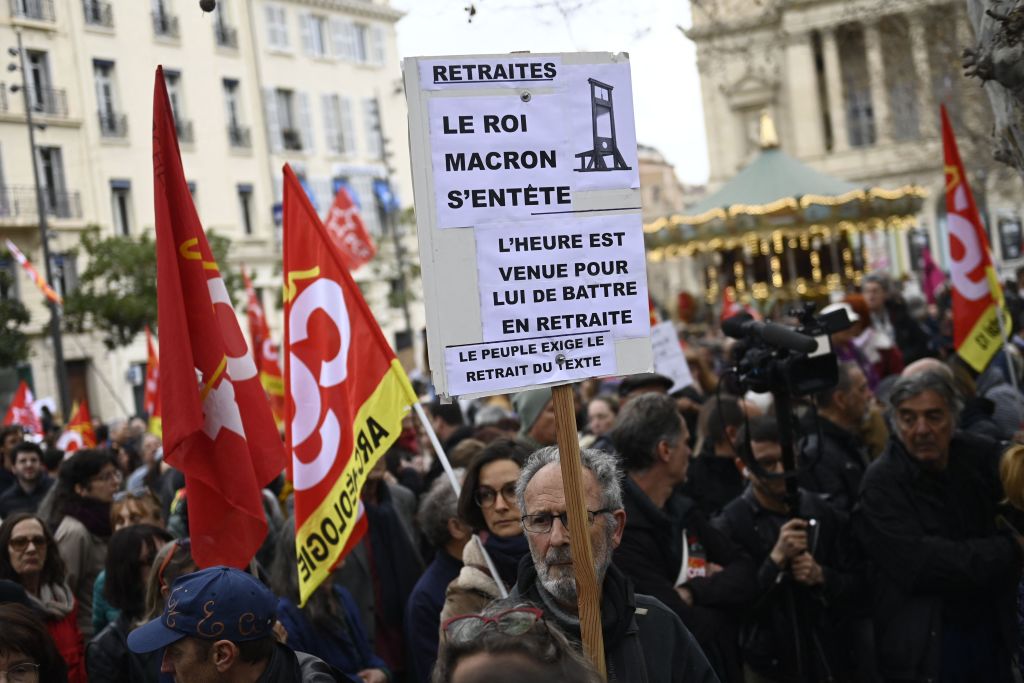‘Teenagers shouldn’t have to decide if they’re public figures or jesters’
Your digest of analysis and commentary from the British and international press

- 1. Since when did teenagers become representatives of society?
- 2. The big question about British foreign aid is always missed: what is it supporting?
- 3. No one actually cares what students think – we should just ignore them
- 4. The Times view on travel restrictions: Holidays on Hold
- 5. Why Emmanuel Macron needed that slap
A free daily email with the biggest news stories of the day – and the best features from TheWeek.com
You are now subscribed
Your newsletter sign-up was successful
1. Since when did teenagers become representatives of society?
Andrew Lilico in The Telegraph
on past indiscretions
“In the past few days we have seen several cases of ‘offence archaeology’,” writes Andrew Lilico in The Telegraph. That’s when “malicious” people dig up things that were said decades ago on Twitter when now-public figures were teenagers. “Most commentary has focused on the unfairness of judging an adult by their misdeeds as a teenager. And of course that is the worst aspect of this,” writes Lilico. But we should also “object to judging everything a private person does by the standards a public figure should aspire to”. Indeed, “what it would be deeply improper for Keir Starmer to do can be fine for a teenager to do, just as what would be deeply improper for Boris Johnson to do can be fine for a jester to do,” Lilico writes. And “a teenager should not have to decide, now, that they want either to become one of society’s representatives or a jester in future, and set their path forevermore, by their comments today.”
The Week
Escape your echo chamber. Get the facts behind the news, plus analysis from multiple perspectives.

Sign up for The Week's Free Newsletters
From our morning news briefing to a weekly Good News Newsletter, get the best of The Week delivered directly to your inbox.
From our morning news briefing to a weekly Good News Newsletter, get the best of The Week delivered directly to your inbox.
2. The big question about British foreign aid is always missed: what is it supporting?
Aisha Dodwell in The Guardian
on reframing aid
While the debate over what percentage of national income should be spent on overseas aid threatens to “rumble on”, we should note “disproportionate attention” has been given to the “narrow question of how much is spent” rather than the key questions “what aid is being spent on and, crucially, why we spend it at all,” says Aisha Dodwell in The Guardian. “When spent well, aid can transform lives and, in humanitarian crises, quite literally save lives,” she writes. But “the full potential of aid spending has not always been realised”. “If aid is to meaningfully tackle poverty, then we need to reframe its very purpose”, she continues. “It can’t just be about charity, and shouldn’t be about self-interest”. Instead, aid should be “part of a broader commitment to dismantling the power structures that maintain global poverty and inequality.”
A free daily email with the biggest news stories of the day – and the best features from TheWeek.com
3. No one actually cares what students think – we should just ignore them
Sean O’Grady in The Independent
on student politics
“Maybe the country is missing a few things about the molten magma of rage that has erupted” after students at Magdalen College, Oxford, decided to take down a picture of the Queen, writes Sean O’Grady in The Independent. Firstly, these Magdalenites are graduate students, and so much more likely to be from abroad – they are therefore probably “less inclined to be Her Majesty’s liege men and women than, say, Oliver Dowden or Gavin Williamson,” writes O’Grady. We’d do well to remember “that this is the sort of fun and games students of all kinds get up to, and much the best policy is to generally ignore it.” When “I ran the Junior Common Room at an Oxford college and we were always trying to get attacked by the national media,” he writes. “We once sent an impertinent letter to The Sun…pompously informing him that we’d cancelled our subscription because of their coverage of the miners’ strike, adds O’Grady. “We got nothing back, not even a made-up quote from a Page 3 girl about how we’d ‘failed to understand the treachery of Arthur Scargill and the enemy within’.” “But, from Fleet Street to Downing Street to Buenos Aires, no one gave a rat’s sh*t about what we thought. Which is as it should be.”
4. The Times view on travel restrictions: Holidays on Hold
The Times editorial board
on mixed messaging
“From the onset of the pandemic, the public has understood the need for restrictions on liberty to stop the spread of infection,” says The Times. The public has given the government their support on this, and what they “reasonably expect in return is clarity about the rules”, says the paper. “Yet on the matter of overseas travel, the government has conveyed muddle.” “Boris Johnson needs to get control of the messaging” on travel restrictions – indeed, “almost as soon as the traffic light system was announced, ministers contradicted each other on what it meant.” Ultimately, if the government “genuinely wants people to stay in Britain for the duration of the crisis, it should say so plainly and acknowledge the costs of this course for national morale and the travel industry,” says the paper. “Procrastination and ambiguity are merely spreading bewilderment.”
5. Why Emmanuel Macron needed that slap
John Litchfield on UnHerd
on political attacks
“As slaps go, it was a rather feeble one, more of swipe than a slap”, writes John Litchfield on UnHerd. “The young man who struck President Emmanuel Macron in the Rhône valley yesterday lacked conviction. It was as if he said to himself: ‘Am I really going to change my life by hitting the President in front of the TV cameras’,” writes Lichfield. Will yesterday’s slap prove to be “prophetic”? asks Lichfield. “Will this act of lèse majesté go down as a humiliation which pre-figured Macron’s defeat in the presidential election next year?” “I doubt it," he writes. “Macron may or may not be defeated but yesterday’s event is playing, so far, in the President’s favour.” Opposition politicians on both the far-right and left “have been building up a hysterical portrait of a wickedly arrogant president, who has been more destructive than any previous French leader,” he writes. The attack may encourage the opposition to calm their “inflammatory rhetoric” for a while, but for now the attack, politically at least, “hasn’t done the president any harm.”
-
 6 of the world’s most accessible destinations
6 of the world’s most accessible destinationsThe Week Recommends Experience all of Berlin, Singapore and Sydney
-
 How the FCC’s ‘equal time’ rule works
How the FCC’s ‘equal time’ rule worksIn the Spotlight The law is at the heart of the Colbert-CBS conflict
-
 What is the endgame in the DHS shutdown?
What is the endgame in the DHS shutdown?Today’s Big Question Democrats want to rein in ICE’s immigration crackdown
-
 How the world reported French riots over shooting of teenage boy
How the world reported French riots over shooting of teenage boyfeature Violence has ripped through French suburbs in days following death of Nahel M.
-
 Pros and cons of cash transfers in humanitarian aid
Pros and cons of cash transfers in humanitarian aidPros and Cons The number of people around the world receiving direct monetary aid has risen 240% since 2020
-
 French minister sparks anger with Playboy cover
French minister sparks anger with Playboy coverSpeed Read Marlène Schiappa gave interview on women’s and LGBTQ+ rights – photographed fully clothed in white dress
-
 France after Macron: can anything stop Marine Le Pen?
France after Macron: can anything stop Marine Le Pen?Today's Big Question Analysts believe the far-right leader may be the biggest political beneficiary of popular fury over President Macron’s pension reforms
-
 Is France 'on the edge of civil unrest'?
Is France 'on the edge of civil unrest'?Today's Big Question Protests have erupted in response to Emmanuel Macron's decision to unilaterally raise the retirement age
-
 France's pension protests, explained
France's pension protests, explainedSpeed Read President Macron wants to raise the retirement age. French workers say 'non merci.'
-
 ‘The UK’s malaise will not end with the Prime Minister’s exit’
‘The UK’s malaise will not end with the Prime Minister’s exit’Instant Opinion Your digest of analysis from the British and international press
-
 ‘Police tactics are not getting worse, they are simply being filmed’
‘Police tactics are not getting worse, they are simply being filmed’Instant Opinion Your digest of analysis from the British and international press